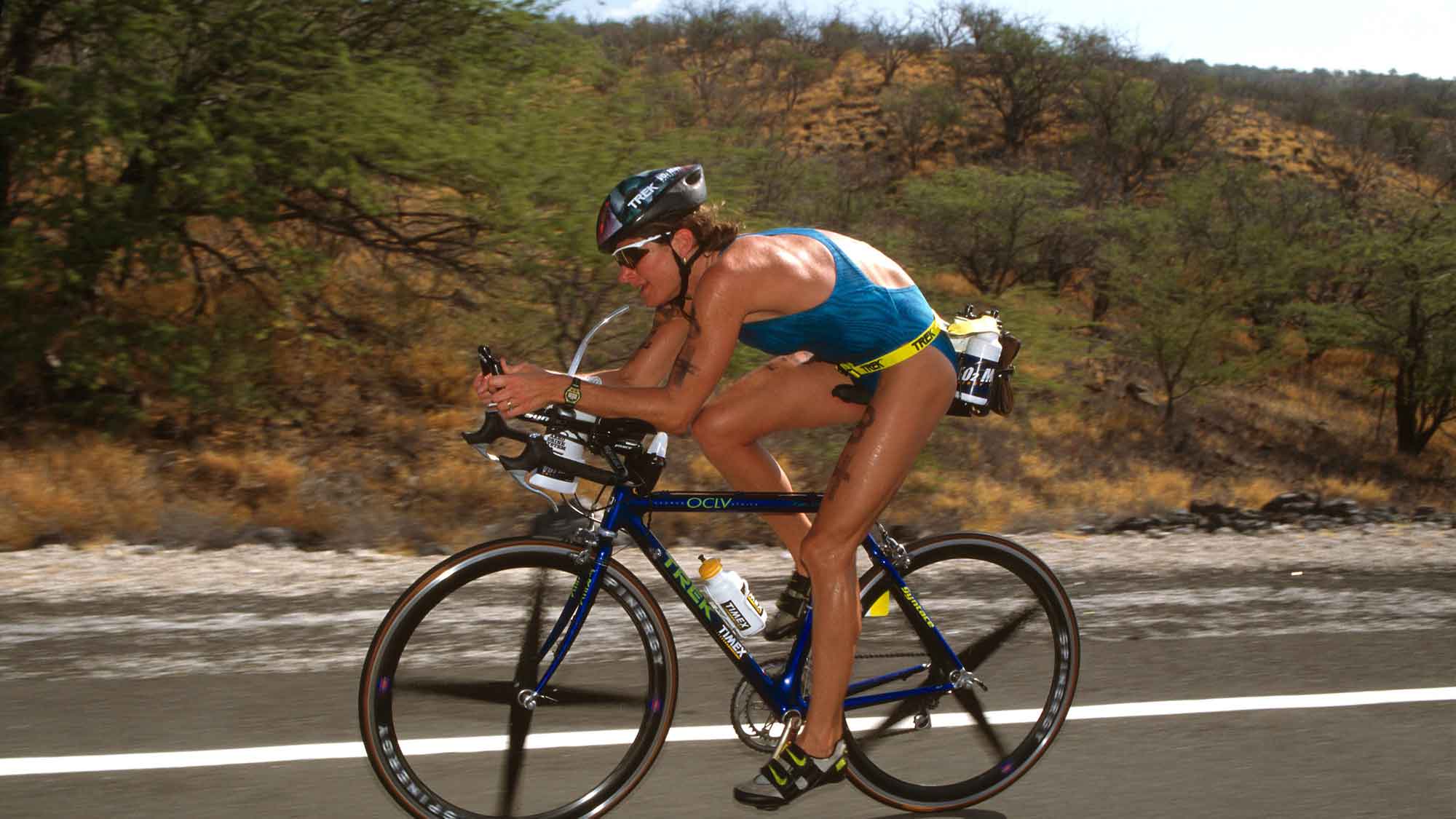Meet a Tri Legend: The Unbreakable Karen Smyers

Photo: Rich Cruse
Karen Smyers’ arrival on the triathlon scene was notably inauspicious. After winning her age division at the 1984 Boston Bud Light U.S. Triathlon Series, she noticed that her time would have earned her second place overall—and a check for $200. “How do I start racing as a pro?” she asked a race official. “Check the other box,” she was told.
The word “epic” comes to mind when considering Smyers’ career. A list of her multiple world championships from 1990-1997 is testament to her greatness (in 1995 she won Kona, ITU worlds, and the Pan Am Games in the same year; she has also been the only American-born female Kona winner in the last 35 years), but then you add in the crazy stuff that marked the tail end of her tenure at the top of the sport: a rib-snapping duel with an 18-wheeler, thyroid cancer, and a freak injury during a home-repair project (she sliced her Achilles tendon while replacing a window) that took her out of competition for the better part of a year.
“The good news,” she recalls, “was that I was pregnant when it happened, so I could take rehab nice and slow.”
At her physical peak, Smyers was a dominating presence on a race course. But even at her best, the yin and yang of Smyersian drama loomed. At the 1995 Ironman World Championship in Kona, she and Paula Newby-Fraser reprised the 1982 Moss/McCartney drama, as Newby-Fraser collapsed approaching the finish line and Smyers ran past to a victory that—from a media perspective at least—seemed almost an afterthought.
“The TV coverage was all about Paula,” Smyers says. “She destroyed me on the bike. She had that race won.” Four years later, during Smyers’ post-pregnancy, post home-improvement-injury comeback, Canadian Lori Bowden set a Kona marathon record to run Smyers down and relegate her to second place.
“I raced up to my potential that day,” Smyers says of the 1999 race. “I‘m proud that Lori needed to break the record to beat me.”
It is a modest self-appraisal typical of Smyers’ approach to life on Planet Earth. In her 50s now, her days as a pro triathlete far behind her, it is clear that her success was rooted in a genuine, unfeigned love for the sport. If she was immersed back then, she is even more so now—still training and racing relentlessly, coaching, speaking, organizing events. She seems content in her non-retirement. If there is a regret, it is her failure to come back from injury and a cancer diagnosis to make the 2000 U.S. Olympic Team.
“Watching the Games on television, I felt like a high school kid who hadn’t been invited to the biggest party of the year,” Smyers says, laughing—the sound of moving water long gone and mostly forgotten. “I got so much more out of this sport than I ever expected,” she says. “It was the most fun way to spend 20 or 30 years that I could ever imagine.”